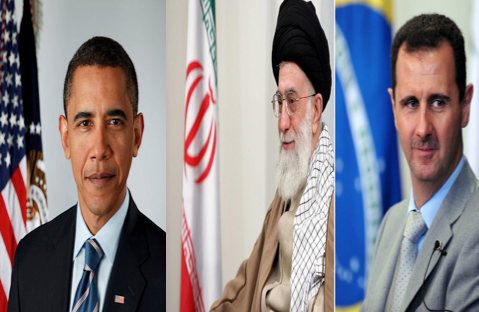
Syria has been subject to a plentitude of political polemics, but just little scholarly research and analysis. Outlets have been saturated with writings by pundits and policy analysts who are beating the drum for the U.S. to intervene in Syria or pushing the U.S. to take a leadership role as it did in case of Libya. What is intriguing is that the same analysts are the ones who would later, should the U.S. decide to intervene in Syria, condemn the United States for its imperialists and modern colonial tendencies. Alongside the pundits, some politicians like Senator John McCain have also been publicly criticizing the current administration for not leading an active role for regime change in Syria and advocating for the implementation of military tactics such as buffer zones, no-fly-zones, and military deliveries. Yet, here are some arguments for why the United States should refrain from intervening in Syria. First of all, it is important to address a widely argued sentiment claiming the positive impact that a Syrian intervention will have on the U.S.'s national interests and security. Such sentiment argues that if the United States intervenes either directly or indirectly in Syria and topples the Bath-ruling coalition's status quo, the Islamic Republic of Iran would consequently lose not only its consistent regional ally, but also its bedfellow in the international arena. As a result, this will disrupt Iran's logistical and communicational interactions with Hezbollah and Hamas, which in turn, would ratchet down Iran's regional influence. In addition, the next Syrian government, supposedly to be led by a Sunni-majority, would be more strategically allied with the United States and Arab gulf states (Saudi Arabia primarily) rather than with Iran. Therefore, regional pressure will increase and Iranian leaders will become more likely to appeal to negotiations for its nuclear enrichment program and human rights abuses, or alternatively, be subjected to the same fate as Assad.
Unfortunately, this argument does not stand against history or Iran's regional capabilities. Firstly, the Iranian leadership has a successful track record of emerging as the winner whenever a sovereign state in the Middle East experiences instability, civil war, or foreign intervention. For instance, the protracted civil war in Lebanon created the ripe environment for Iranian leaders to give birth to one of the strongest non-state actors in the region: Hezbollah. Secondly, after the 2003 U.S. intervention in Iraq, Iranian leaders were able to immediately create a powerful Shiite proxy in Iraq - the Jesih AlMahdi (Mehsi Army) - as well as coordinate with Shiite leaders so as to infiltrate Iraqi governmental affairs. The Iranian leadership and Revolutionary Guard's tactical strategies are characterized not by public, foreign interventions, but clandestine investments in a local, community-based, organized group that empower a proxy capable of fighting not only regional governments but world powers such as the U.S. and her Western allies. When it comes to developing proxies, Iran can be considered as the regional mastermind. By implementing this strategy, Iranian leaders avoid being held legally accountable in the region and in the face of the international community. If the U.S. were to intervene in Syria and liberate Damascus, Iran will definitely not be the loser. Iran has strong political bonds with the Alawite leaders and community and is capable of creating a proxy as powerful, if not more, than Hezbollah in Syria. The Alawite proxy can instigate considerable amount of tension through the region and can keep Syria destabilized and in a civil war climate indefinitely. The price of oil will inevitably raise as a consequence, which will also serve the interests of the Iranian leaders. The second argument states that if the U.S. intervenes in Syria, the immediate "democratic" system of governance to follow will be strategically and politically allied with the United States. Those who make this presupposition should pay a closer examination to the socio-political fabric of the Syrian society, the state formation, and the process of democratization in the Middle East. In any case of intervention in Damascus, the immediate creation of a centralized government will be highly unlikely. Democratization is not a simple process that is achievable overnight. I have several family members who have lost their lives in the battle against the police-state of Syria. Unfortunately, democratization is a messy and bloody process that necessitates sacrifices.
If the U.S. intervenes in Syria, we are more likely to witness one of the greatest regional and international proxy battlegrounds, of our generation, in Damascus since the Vietnam War which would pull Russia, Iran, Saudi Arabia, Hezbollah, Hamas, Iraq and other powers actively into Damascus in order to preserve their national and geopolitical interests.
Part of this article was published in the Los Angeles Times.
